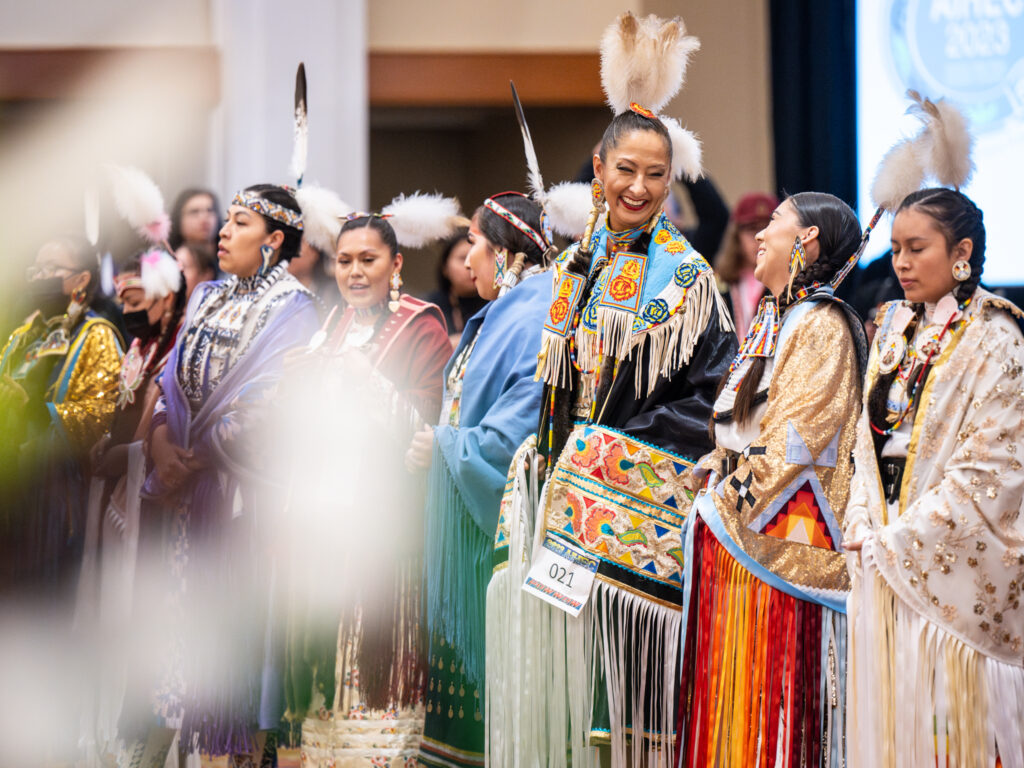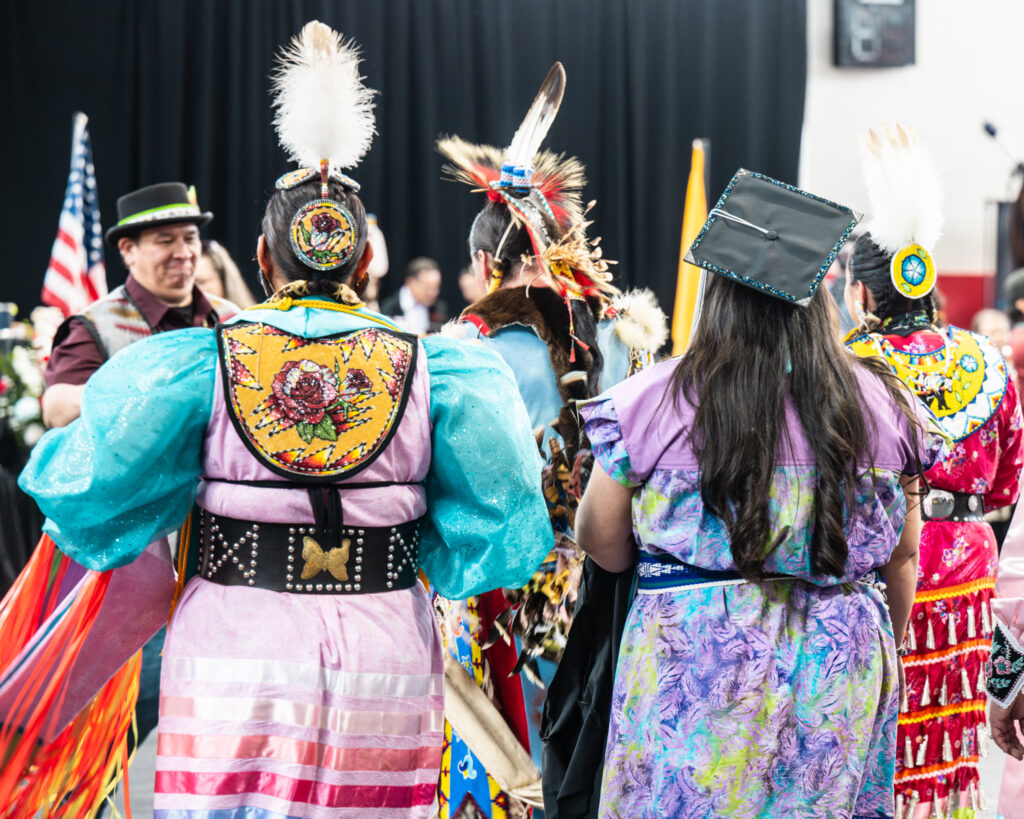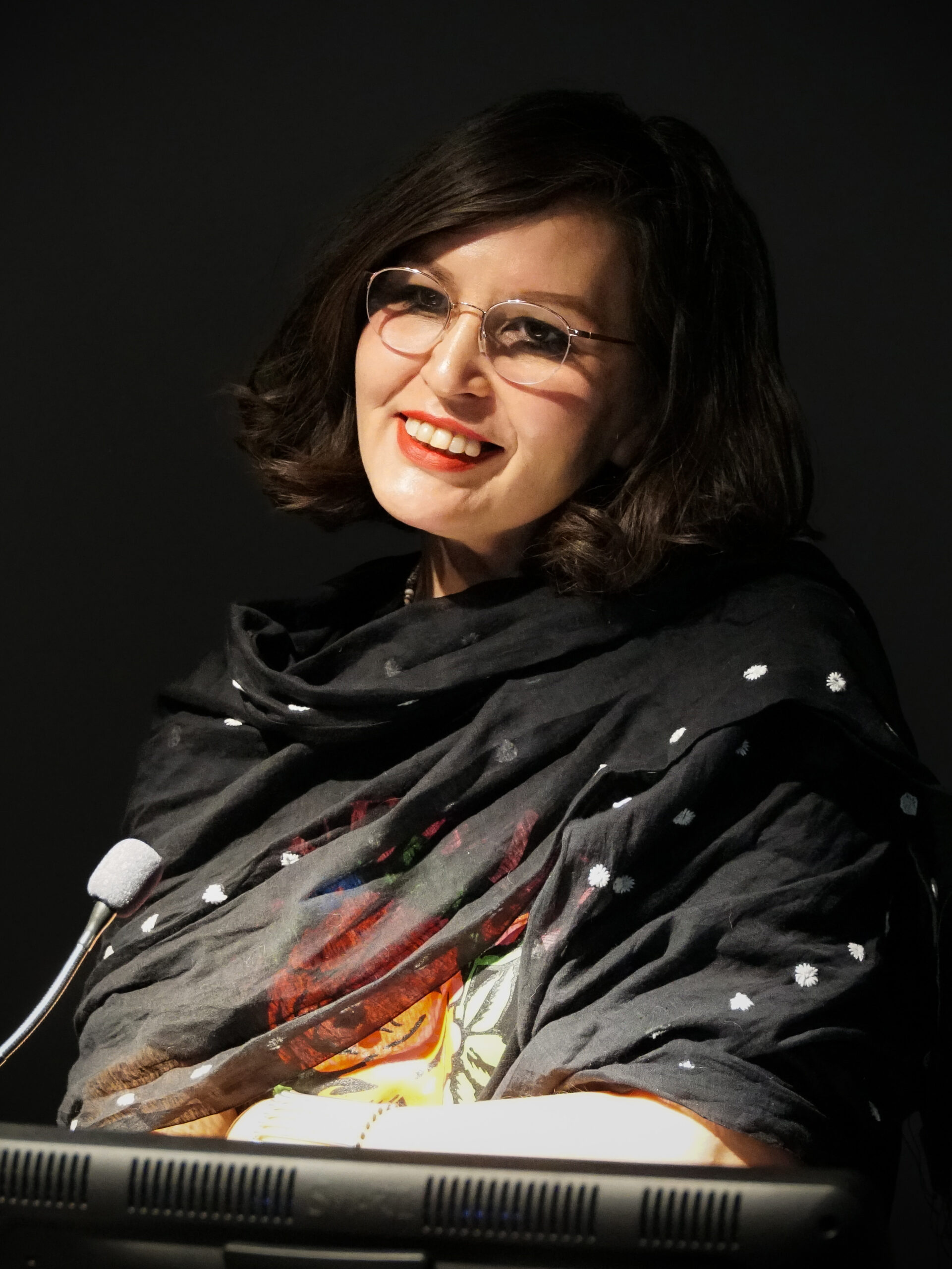Acclaimed poet Layli Long Soldier believes the second Monday of October, which in 2019 was officially deemed Indigenous Peoples’ Day, is a good opportunity to raise collective awareness around Native communities. But it’s work that goes beyond just a one-day moment, she firmly believes.
As a creative writing teacher in the MFA program at the Institute of American Indian Arts in Santa Fe, New Mexico, Long Soldier centers her work around Indigenous culture and gives voice to people who have not only been relegated to the fringe of American history, but are still fighting to preserve their traditions and culture today.
Her first collection of poetry Whereas (Graywolf Press, 2017) received the National Book Critics Circle Award, addressing the destruction of Native peoples across the United States. The film Lakota vs. United States, which Long Soldier wrote and narrated, premiered in 2022 at the Tribeca Film Festival and has received recognition for exposing atrocities committed against Native people as well as showcasing their resilience.
Long Soldier speaks with Sweet July about the ways she’s fueling this movement—all year long.
How do you feel about the term Native American? Indigenous? Are there differences?
Layli Long Soldier: I don’t know if there’s any correct [name], because it depends on the context and the place and the people. There’s all those different terms—Native American, American Indian, Indigenous. I personally usually just say Native, but to be more specific, I think I just usually refer to myself as [Oglala] Lakota, [or] by my tribe. The tribal names are what we have called ourselves for thousands of years. I think that’s really the heart of the issue; we’re trying to use the English language to refer to very diverse people. We’re trying to find one term to call over 560 different nations, so it is a problem.

What are some of the issues that you seek to explore with respect to both the history and the present reality of Natives?
LS: My book Whereas was a response to the national apology to Native Americans. That was a project where I engaged with that [2009] congressional document that sort of outlined all these wrongdoings by the U.S. government in relation to Native people. I was not really pleased with that apology—both the written document and how it was delivered, which was basically a non-delivery. So, I wrote all these poems engaging with the language of that document. And I wrote a bit about community and our language and so on. And I just finished a long legal essay on the issue of our treaties and land diminishment. It’s a 24-page essay, and I cite a lot of Supreme Court cases and Congressional acts and so forth. So once again, I am engaging with governmental policy and documents; that’s a form of poetics they call documentary poetics, [and] I do a lot of that.What do you think is the biggest misconception that people have about Native people?
LS: I think in the American mind, Native people are very far away. We’ve been relegated to a sort of historical relic. That is, for me, one of the biggest misconceptions that exists, to understand that we are living, present and we have vibrant cultures here and now. We have beautiful families. We have beautiful traditions. I think that’s something that is not very present in the American mind.







